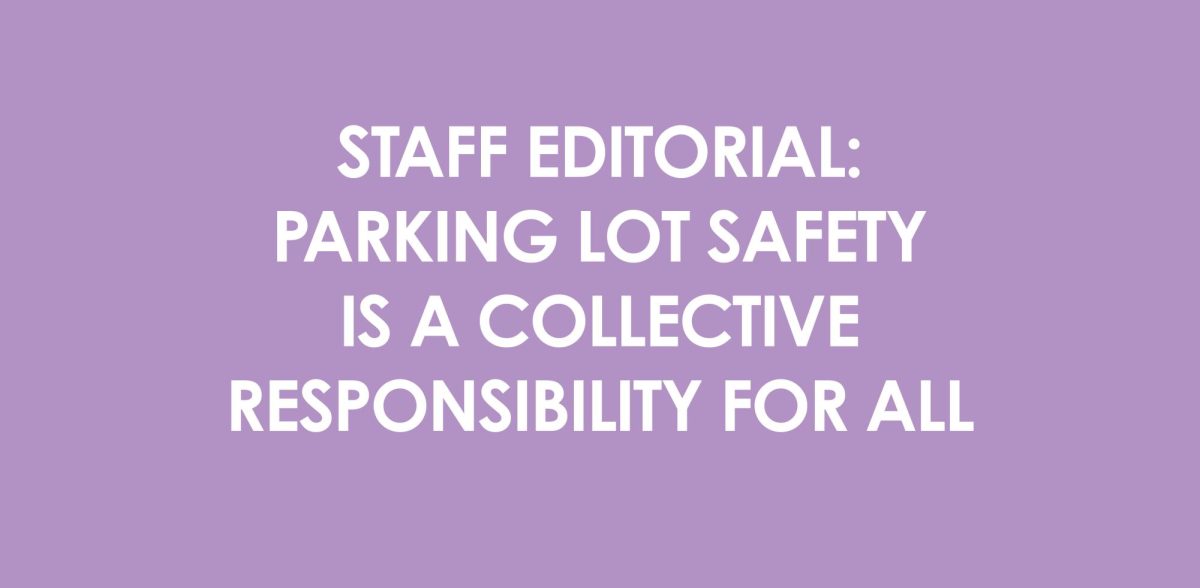With gas prices below $2 for the first time in years, we are less likely to conserve gas and more likely to drive more. However, with increased gas use, there’s an increase in external costs—that is, cost in environmental damage—that is separate from the actual monetary cost of the gasoline. And because of the problem with climate change, we’re meant to keep our external costs down.
You’ve heard all the tips. Take shorter showers. Turn off the lights when you leave the room. Unplug your appliances when you’re not using them. Do all these actions save on the energy bill? Absolutely. But if you’re looking to have a positive impact on the environment, they probably won’t make a difference.
According to an Aug. 27, 2014 article by The New Republic, The United Nations Intergovernmental Panel on Climate Change (IPCC) released a report stating that we will soon no longer be able to keep global warming at bay. World leaders have pledged to limit the warming to 3.6 degrees, but that no longer looks plausible with greenhouse gas emissions growing at 2.2 percent each year. According to the IPCC, we would need to cut emissions drastically, by 40 to 70 percent worldwide by 2050, in order not to go over 3.6 degrees.
That means our only real hope is for corporations to start cutting fossil fuel use and implementing tighter environmental policies. The small, do-it-yourself actions we take, like walking rather than driving, can add up, but they will never be able to outweigh big business.
According to an unpublished 2010 study by the United Nations, the combined environmental damage of the world’s 3,000 biggest corporations was worth $2.2 trillion, coming from greenhouse gas emissions, local air pollutants and overuse and pollution of freshwater. However, the study also found that if those companies were to be held financially accountable for these damages, they would lose more than one-third of their profits. In a world where money is king and politicians can be bought with lobbyists, it seems unlikely that a big business will ever take responsibility and change their ways.
As citizens, though, we can and should still take political action when it comes to putting tougher regulations on a corporation’s ability to wreak havoc on the environment. A Jan. 30, 2014 article by the Indianapolis Business Journal stated the Indiana Senate would soon vote on a bill. If the bill were passed, Indiana legislators would be unable to make state environmental standards more stringent than federal standards. Republican State Rep. David Wolkins tried to justify the bill by saying he didn’t want environmental regulations to curtail Indiana industries. Luckily, in a Feb. 24 update, the Senate denied the bill despite lobbyists from businesses and agriculture speaking in favor of it. However, Wolkins said he wishes to pursue discussion about the bill.
Next time a bill (maybe this particular bill) concerning the environment comes up, take a stand. Call or email your state legislators (Sen. Dan Coats and Joe Donnelly, as well as Rep. Susan Brooks). Make your voice heard.
Finally, vote with your pocket by not supporting corporations that unabashedly pollute and destroy without consequences. For example, according to Yale Environment 360, Unilever, a food corporation that owns brands like Ben & Jerry’s, is the world’s largest consumer of palm oil. The oil is popular in food and cleaning agents but is hugely unsustainable and causes massive rainforest deforestation. There are numerous other corporations—like Fiji Water, which depletes Fiji’s aquifers at the expense of natives who still struggle with poverty—that profit from environmental destruction. Through well-placed boycotts of unapologetic companies, our actions will mean more for the environment than turning off the TV ever would.



















![Joseph Broman, Mu Alpha Theta sponsor, grades tests for his honors precalculus/trigonometry class. Broman said, “I’m retiring from the Math Club next year and I’m just going to do Mu Alpha Theta so I can focus on that one and we can do more [speaker series] first semester.”](https://hilite.org/wp-content/uploads/2024/03/IMG_9502-1200x900.jpg)











![British royalty are American celebrities [opinion]](https://hilite.org/wp-content/uploads/2024/03/Screenshot-2024-03-24-1.44.57-PM.png)




















![Review: “The Iron Claw” cannot get enough praise [MUSE]](https://hilite.org/wp-content/uploads/2024/04/unnamed.png)
![Review: “The Bear” sets an unbelievably high bar for future comedy shows [MUSE]](https://hilite.org/wp-content/uploads/2024/03/unnamed.png)
![Review: “Mysterious Lotus Casebook” is an amazing historical Chinese drama [MUSE]](https://hilite.org/wp-content/uploads/2024/03/0.webp)
![Thea Bendaly on her Instagram-run crochet shop [Biz Buzz]](https://hilite.org/wp-content/uploads/2024/03/IMG_0165-1200x838.jpg)
![Review: Sally Rooney’s “Normal People,” is the best book to read when you are in a time of change [MUSE]](https://hilite.org/wp-content/uploads/2024/03/20047217-low_res-normal-people.webp)
![Review in Print: Maripaz Villar brings a delightfully unique style to the world of WEBTOON [MUSE]](https://hilite.org/wp-content/uploads/2023/12/maripazcover-1200x960.jpg)
![Review: “The Sword of Kaigen” is a masterpiece [MUSE]](https://hilite.org/wp-content/uploads/2023/11/Screenshot-2023-11-26-201051.png)
![Review: Gateron Oil Kings, great linear switches, okay price [MUSE]](https://hilite.org/wp-content/uploads/2023/11/Screenshot-2023-11-26-200553.png)
![Review: “A Haunting in Venice” is a significant improvement from other Agatha Christie adaptations [MUSE]](https://hilite.org/wp-content/uploads/2023/11/e7ee2938a6d422669771bce6d8088521.jpg)
![Review: A Thanksgiving story from elementary school, still just as interesting [MUSE]](https://hilite.org/wp-content/uploads/2023/11/Screenshot-2023-11-26-195514-987x1200.png)
![Review: When I Fly Towards You, cute, uplifting youth drama [MUSE]](https://hilite.org/wp-content/uploads/2023/09/When-I-Fly-Towards-You-Chinese-drama.png)
![Postcards from Muse: Hawaii Travel Diary [MUSE]](https://hilite.org/wp-content/uploads/2023/09/My-project-1-1200x1200.jpg)
![Review: Ladybug & Cat Noir: The Movie, departure from original show [MUSE]](https://hilite.org/wp-content/uploads/2023/09/Ladybug__Cat_Noir_-_The_Movie_poster.jpg)
![Review in Print: Hidden Love is the cute, uplifting drama everyone needs [MUSE]](https://hilite.org/wp-content/uploads/2023/09/hiddenlovecover-e1693597208225-1030x1200.png)
![Review in Print: Heartstopper is the heartwarming queer romance we all need [MUSE]](https://hilite.org/wp-content/uploads/2023/08/museheartstoppercover-1200x654.png)























![Review: Ladybug & Cat Noir: The Movie, departure from original show [MUSE]](https://hilite.org/wp-content/uploads/2023/09/Ladybug__Cat_Noir_-_The_Movie_poster-221x300.jpg)

![Review: Next in Fashion season two survives changes, becomes a valuable pop culture artifact [MUSE]](https://hilite.org/wp-content/uploads/2023/03/Screen-Shot-2023-03-09-at-11.05.05-AM-300x214.png)
![Review: Is The Stormlight Archive worth it? [MUSE]](https://hilite.org/wp-content/uploads/2023/10/unnamed-1-184x300.png)






